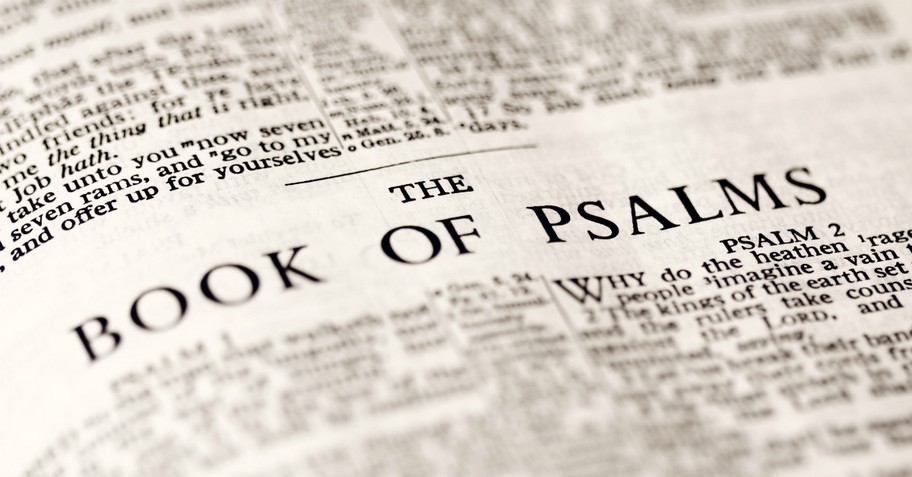The Psalmist wrote,
“Be still, and know that I am God!
I will be honored by every nation.
I will be honored throughout the world” (Psalm 46:10)
The context of this verse makes its message all the more fascinating and appropriate for our times. What a perfect time to heed its meaning.
Before we dive into the context of this verse, let's explore more Scripture that talks about being still.
Exodus 14:14: "The Lord will fight for you, and you have only to be silent.”
As Christians, we do not have to fight our battles alone. In fact, we need to depend on God to sustain us in the midst of the most difficult of trials.
Mark 4:39: "And he awoke and rebuked the wind and said to the sea, “Peace! Be still!” And the wind ceased, and there was a great calm."
Even the wind and the waves obey his voice. In the midst of the storm, we may wonder, "Where is God." But we do not need to fear if he will abandon us. He never has and he never will.
Isaiah 32:17: "And the effect of righteousness will be peace, and the result of righteousness, quietness and trust forever."
Have you ever heard of the concept of Shalom? The way things are meant to be? When we trust in the Lord, we experience a taste of Shalom. Shalom means stillness, means righteousness, and everlasting trust.
Now that we've explored some verses on being still, let's talk about what the Psalmist meant above.
Photo credit: ©Unsplash/aaker

What Does it Mean to "Be Still and Know That I am God"?
“Be still” or “cease striving” (in NASB and KJV) come from the Hebrew word transliterated raphah. This translation from Blue Letter Bible says it means to let drop, relax, to let go, to be quiet, to be still.
What a beautiful contrast. When the earth shakes, mountains crumble, and waters foam and churn, we can quiet our hearts in the Lord. When the nations are in chaos and the whole world panics, God’s people can have peace. We who know the Lord can drop our worries at His feet; we can let go of our disappointments and rest in His unchanging character. He remains our fortress in time of trouble.
As explosives and earthquakes cause mountains to tremble, the coronavirus has shaken the whole world. Many health workers, exposed to this deadly virus, work without proper protection. The infected worry they won’t get proper care. Grandparents are isolated from their children and grandchildren. Those who can’t work wonder if their businesses will survive. While this pandemic has rocked us physically, emotionally, and financially, the mountains still stand.
Psalm 46 describes a time when the whole earth is literally shaken. During this time, the earth gives way, mountains crumble, and oceans churn.
“God is our refuge and strength,
always ready to help in times of trouble.
So we will not fear when earthquakes come
and the mountains crumble into the sea.
Let the oceans roar and foam.
Let the mountains tremble as the waters surge! …
The Lord of Heaven’s Armies is here among us;
the God of Israel is our fortress” (Ps. 46:1-3, 11).
In spite of these fearful descriptions, this Psalm inspires hope. Though the earth crumble and the nations fall into chaos—when the worst we can imagine occurs—those who take refuge in God will not be shaken.
Photo credit: Unsplash/Colton Duke

Other Translations for Psalm 46:10 "Be Still and Know"
The New American Standard Bible says, “Cease striving and know that I am God” instead of “be still.” Both terms address the need to quiet our hearts in the knowledge and presence of God. We may need to be physically still in order to quiet our state of mind and gain an eternal perspective. Quiet helps us remember God’s character and sovereignty (Lam. 3:20-26). He is over all and supports us no matter how our circumstances look.
The Message translation depicts a more modern picture. “Step out of the traffic! Take a long, loving look at me, your High God, above politics, above everything.”
We might say, instead of filling your mind with bad news from the TV and the internet, read your Bible! Dwell on the Lord. Remember His faithfulness and power.
Perhaps you can relate to the circumstances is this Psalm. The world as you knew it has been shaken. Perhaps your health, a relationship, your dreams for your children, or your finances have turned to dust before your eyes. You need the ever-present help only the Lord can supply. Why not take this time to be still and remember the words of the Psalmist?
There are plenty of ways that you can do this, and now is an ideal time to try a new type of Bible study. Maybe you’d like to find a devotional to follow along with, or you can start a Bible study group through video chat with some friends.
Photo credit: ©Sparrowstock

Who Wrote Psalm 46 and What is the Context of This Scripture?
Psalm 46 is one of many Psalms written by the sons of Korah. It was sung as part of Israel’s worship. R.R. Hutton writes in The Anchor Yale Bible Dictionary that Korah was “one of the principal families involved in leadership in the Jerusalem temple. The earliest attestation to the role of the Korahites is perhaps to be seen in 2 Chr. 20:19, where the Korahites are listed alongside the Kohathites as leading the people in praise.”
What Is the Historical Context?
This Psalm addresses Israel in a time of turmoil. The reference to burning shields/chariots, bows and spears, the nations in uproar, and God’s holy city not falling suggests this chaos came from war (v. 5, 6, 9). It reminds Israel that God dwells in His holy city Jerusalem (v. 4-5). He is her ever-present help (v. 1). He will not forsake her in time of destruction.
The Bible often used current happenings to point to future events. The Ryrie Study Bible notes, “While the invasion of Sennacherib during the reign of Hezekiah (2 Kings 18:13-19:37) may form the historical background for this Psalm, it seems to anticipate Psalm 47, which is a song of God’s kinship, and thus ultimately refers to the millennial reign of Christ.”
While it may have been written in war times, the earth wasn’t literally falling apart, even though it probably felt that way to those whose lives were turned upside down. The Bible says there will be cataclysmic changes on the earth surrounding the return of the Lord. This Psalm could point to that time. However, other commentators suggest that the catastrophic description of the earth falling apart is hyperbolic language to show its truths suit any devastating event humankind may face.
Photo credit: ©Getty Images/Casey Hill Photo

How Can We Be Still and Know in Turbulent Times?
This time when we’ve been asked to stay at home is ideal for being still in God’s presence. Do you have a habit of meeting with Him each day to read His word and hear His perspective? This is a perfect time to choose a book of the Bible and begin to work your way through it. Read and meditate on what it says. How do its words apply to you in your current situation? Keep a journal of your insights and prayers.
If you prefer a Bible study guide or workbook, pick one and ask God to speak to you each day. We don’t have to jump around searching for answers. He uses our daily time with Him to renew our thinking and guide us.
When God gives you a promise from His word, claim it. Whenever your heart begins to race, be still and declare God’s promise out loud.
The Lord now dwells in the hearts of believers. Jesus is Emmanuel, God with us. And He has promised, “I will never fail you. I will never abandon you” (Hebrews 13:5). When we have that settled in our hearts, we have a message to share with a fearful world.
My friend Nancy was in Manilla with a team of Christian students several years ago when a big earthquake collapsed tall buildings, killing many people. The earthquake rocked the people living there with great fear. They came out in throngs, open to hear the good news that Jesus saves! 50,000 people gave their lives to Christ that week.
This time of fear is a time of opportunity for the church. But first we must be still and know that Jesus is Lord!
Sources
Hutton, R. R. (1992). Korah (Person). In D. N. Freedman (Ed.), The Anchor Yale Bible Dictionary (Vol. 4, p. 100). New York: Doubleday.
Charles Caldwell Ryrie, The Ryrie Study Bible, (Chicago, IL: Moody Press, 1976, 1978), p. 841.
Photo credit: Unsplash/Tim Bogdanov
Originally published April 20, 2020.







